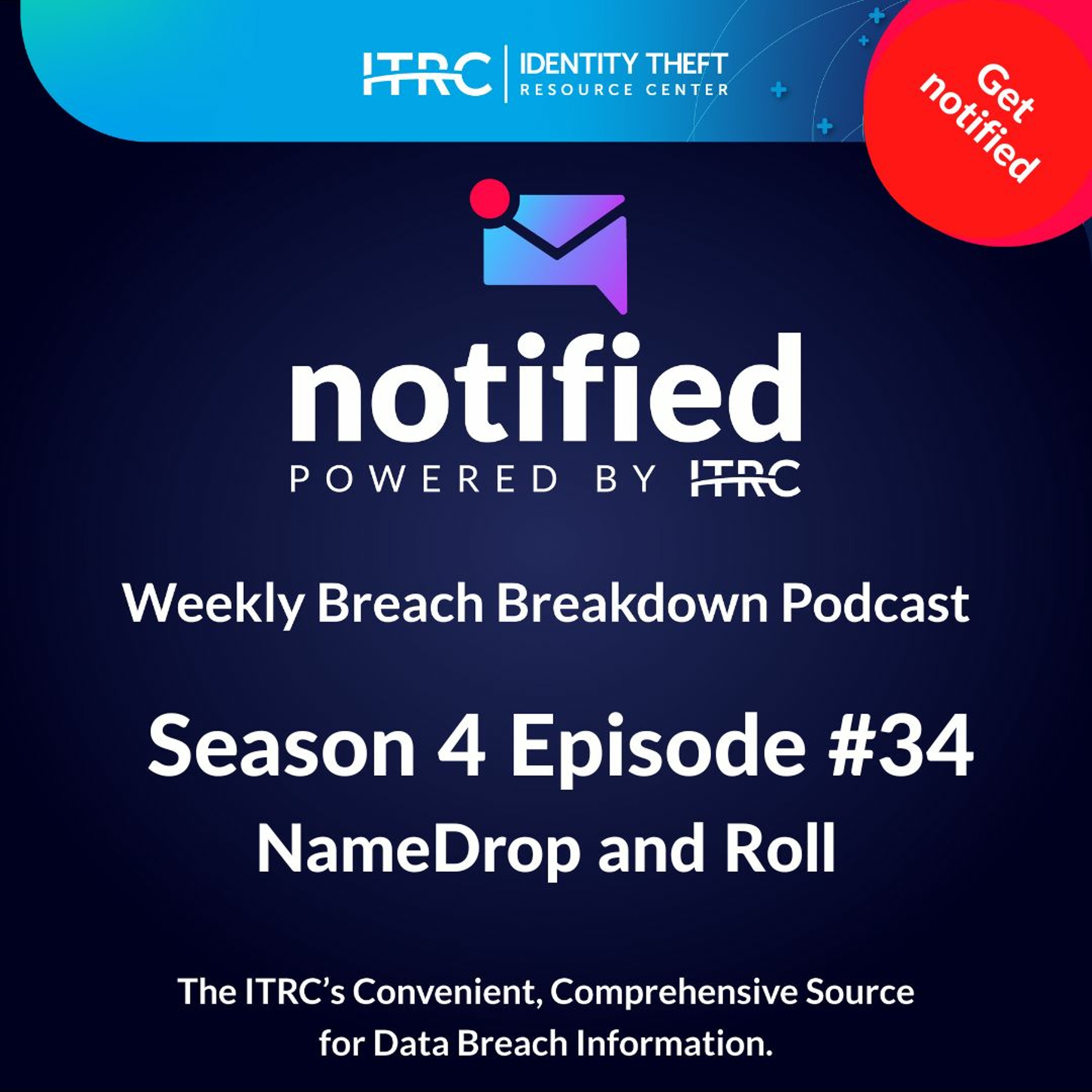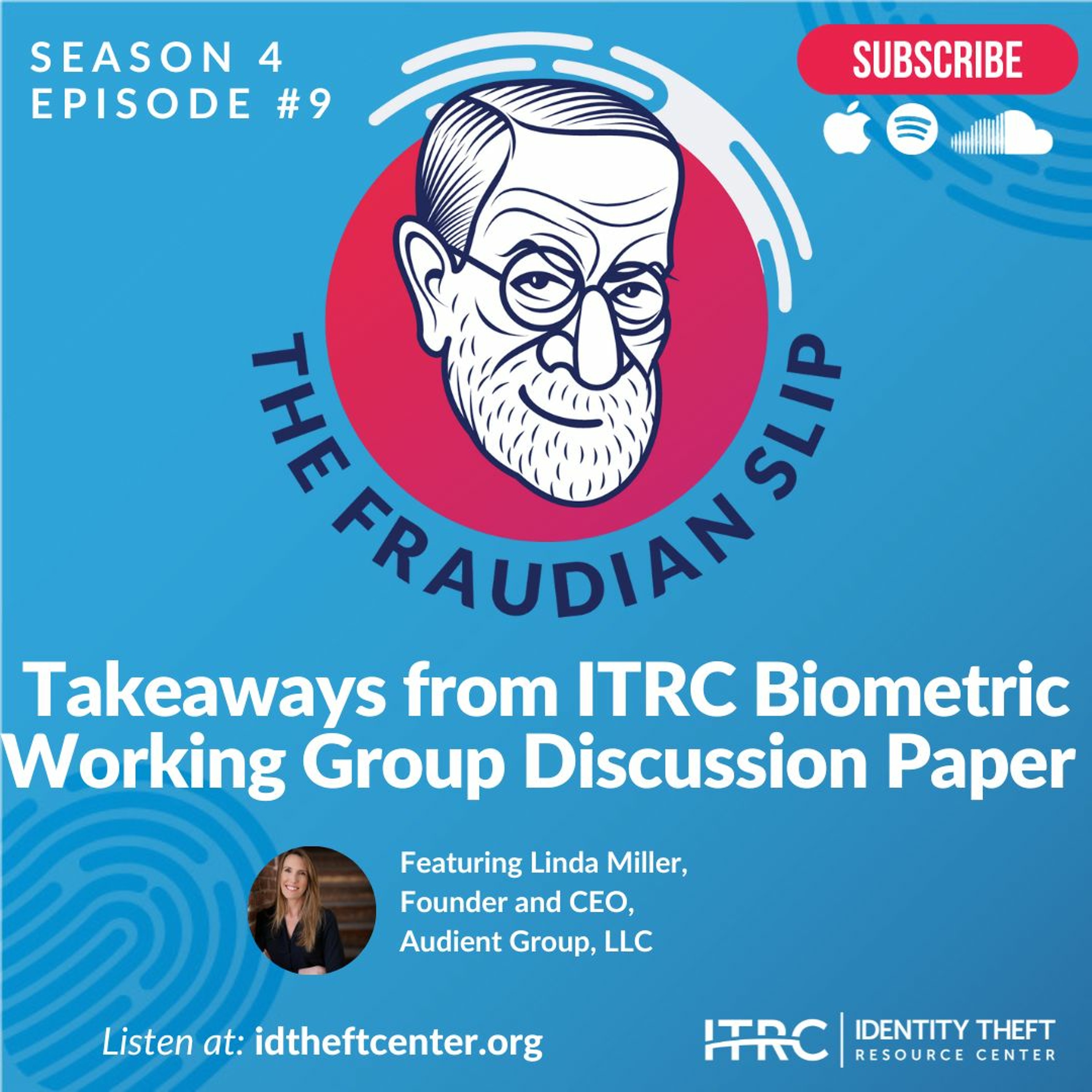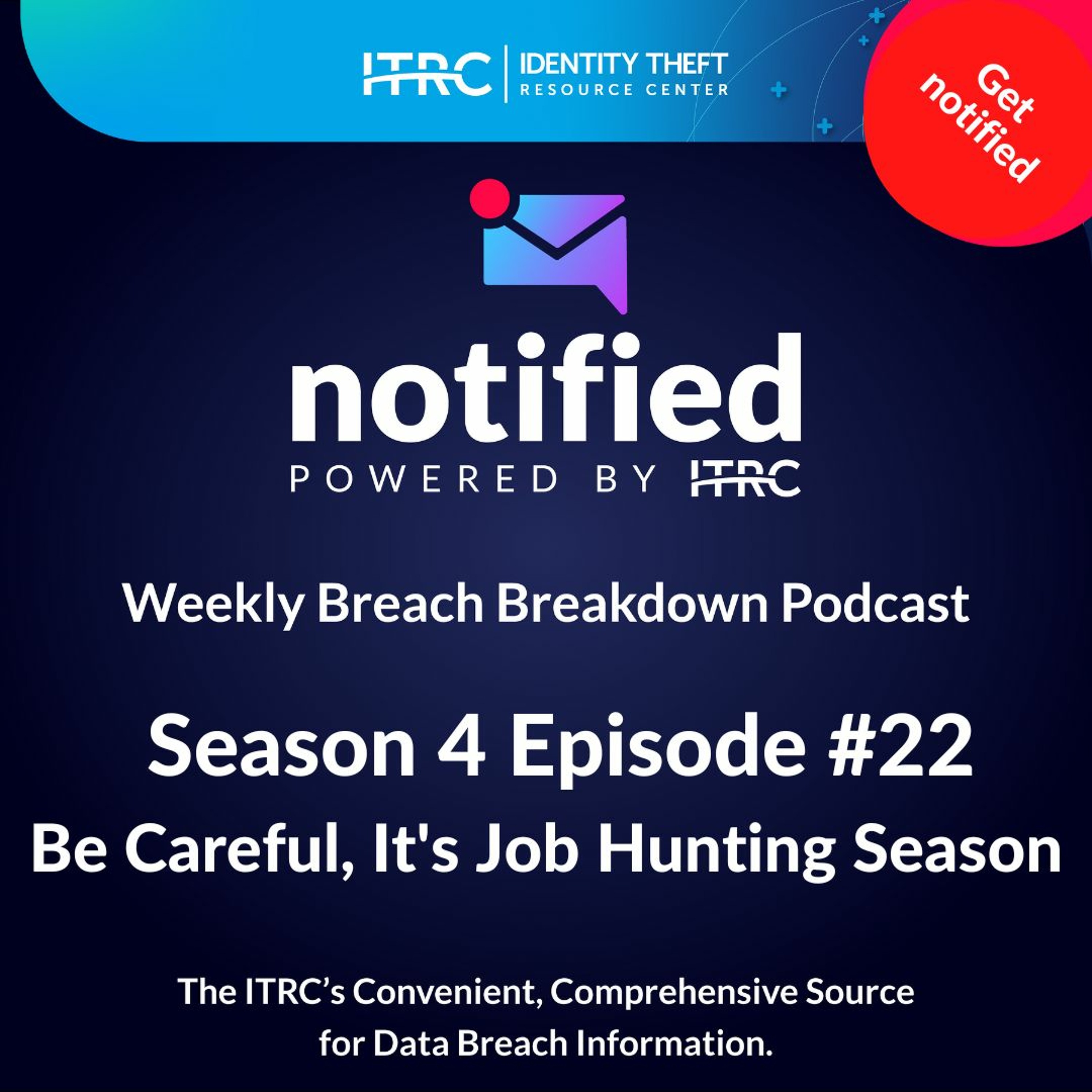Each week on this podcast, we look at the most recent events and trends related to data security and privacy. Today, we'll discuss a particular scam that’s rising in popularity, job scams.
Show Notes
Follow on LinkedIn: www.linkedin.com/company/idtheftcenter/
Follow on Twitter: twitter.com/IDTheftCenter
Show Transcript
Welcome to the Identity Theft Resource Center’s (ITRC) Weekly Breach Breakdown for August 11, 2023. Thanks to Sentilink for their support of the podcast and the ITRC. Each week, we look at the most recent events and trends related to data security and privacy. This week, we look at how job scams work with them rising in popularity.
In today’s world, finding a job online can be a great way to expand your horizons and explore new opportunities. However, it’s not as safe and straightforward as it used to be, and it’s important to be cautious of potential job scams.
How Job Scams Work
Identity criminals use a variety of tactics to target job seekers, including creating fake job listings on popular job posting platforms like Indeed and Craigslist. They even use social media sites like LinkedIn to lure in potential victims. This practice is only growing more and more popular for identity criminals.
The Increase in Job Scams
According to the FBI’s Internet Crime Complaint Center (IC3), over 14,000 people reported being victims of employment scams in 2022, with losses totaling more than $52 million. The ITRC has also seen a rise in online job scams asking job seekers for their ID.me login and other sensitive personal information. In fact, from May 2023 to June 2023, the ITRC saw a 256 percent increase in job scams reported to the Center.
How You Can Protect Yourself
It’s important to be vigilant and to do your research before applying for any job online to protect yourself from these online job scams. The ITRC is an excellent resource for assistance if you believe you have been the victim of a job scam or want information on how job scams work. Some other tips to avoid falling victim to an online job scam include:
- Know the source of the job listing.
- Be wary of offers that seem too good to be true.
- Be careful how much personal information you share with potential recruiters.
- Avoid upfront fees or costs.
- Never send money to your new boss.
Following these simple steps can reduce your chances of falling victim to an online job scam and protect your personal information and financial security. It’s always better to err on the side of caution and take the time to investigate any job opportunity before sharing your personal information or sending money. Stay safe, and happy job hunting!
Contact the ITRC
If you want to know more about how to protect your business or personal information, how job scams work, or if you think you have been the victim of an identity crime, you can speak with an expert ITRC advisor on the phone, chat live on the web, or exchange emails during our normal business hours (Monday-Friday, 6 a.m.-5 p.m. PST). Just visit www.idtheftcenter.org to get started.
Thanks again to Sentilink for their support of the ITRC and this podcast. Be sure to check out our sister podcast, the Fraudian Slip, for the latest in all things compromise, crime, and fraud that impact people and businesses. We will return next week with another episode of the Weekly Breach Breakdown.
Listen On
Also In Season 4
-

The Fraudian Slip Podcast ITRC - 2024 Predictions
Welcome to the Fraudian Slip…the Identity Theft Resource Center’s podcast where -

The Weekly Breach Breakdown Podcast by ITRC - NameDrop and Roll - S4E34
Welcome to the Identity Theft Resource Center’s Weekly Breach Breakdown for Dece -

The Fraudian Slip Podcast ITRC - Takeaways from the ITRC Biometric Working Group Discussion Paper
Welcome to the Fraudian Slip…the Identity Theft Resource Center’s podcast, where -

The Weekly Breach Breakdown Podcast by ITRC - Bad News travels Fast - S4E33
Welcome to the Identity Theft Resource Center's Weekly Breach Breakdown for Nove
